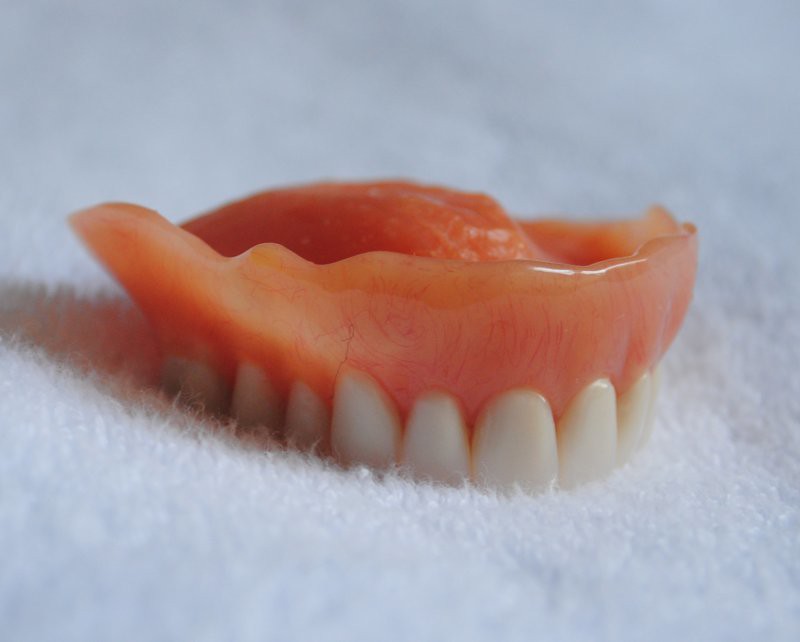Posted: October 24, 2017

When it comes to replacing missing teeth, dental implants or dentures are the most common options for replacing teeth currently. There are a number of differences in choosing an implant as a replacement choice or choosing dentures. If you are unsure of which method works best for you, read on to obtain a firmer understanding of what each option has to offer.
Dentures are a false set of teeth that replace missing teeth. They can replace a complete set of teeth or just a few teeth within the jaw. There are different types of dentures available such as a complete denture or a partial denture. A complete denture replaces a complete set of teeth and a partial denture replaces a few teeth within an arch. Depending on your case, your doctor will choose the best option for you. The quality of dentures have improved greatly over the past years, but they are still not ideal for everyone. Complete dentures if not secured properly with denture adhesive, may slip out of place while eating, speaking or in some extreme cases of sky diving. Dentures slipping out of the mouth can be a potentially embarrassing situation for anyone. Partial dentures may cause infection or decay in other teeth if they are not fitted properly. Ill- fitting dentures can increase the risk of needing a tooth filling in the neighboring teeth or the teeth that retain the partial denture in place. Dentures would be the best option for patients who can’t receive implants due to certain health reasons. Patients whose gums and jaw are weak or unhealthy would be the best suited for a denture appliance.
Implant supported crowns are replacement teeth that are implanted surgically into the jawbone. If you have a few or several missing teeth with stable bone tissue, you are a great candidate for dental implants. Dental implants offer a more secure form of replacement for missing teeth. They don’t require adhesive to keep them in place. therefore there is no fear of your teeth slipping out during an important presentation at work. Also, unlike dentures which require you to remove them nightly for cleansing, implants don’t require you to remove them nightly as they are a permanent source of tooth replacement. Implant hygiene care requires brushing your teeth, flossing thoroughly, and rinsing with mouth wash just as you would care for your natural teeth. Implants with good oral hygiene are known to last for 20 years or more. As long as you maintain healthy gums and no bone loss occurs, dental implants would be the best option.
Still unsure which option works best for you, schedule an appointment with us!


